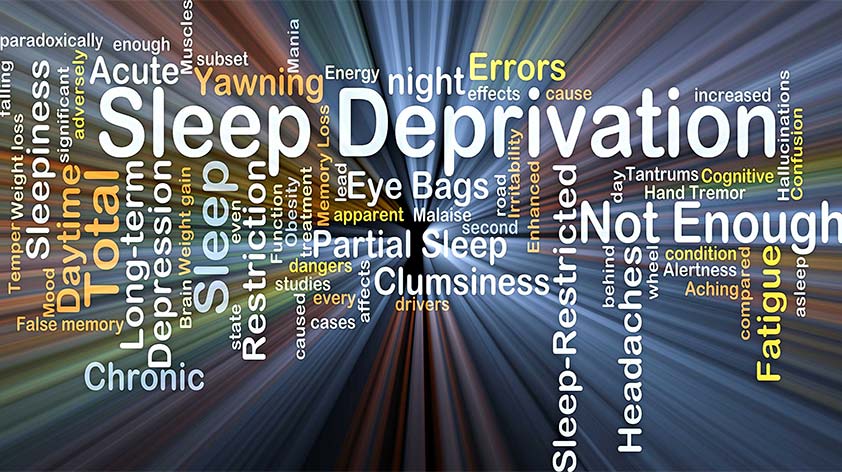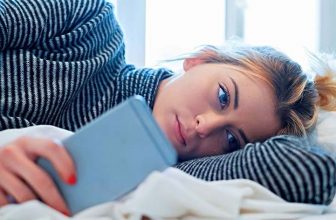
Sleep deprivation is one of life’s cruellest things, not only can it cause traffic accidents and slow cognition, but chronic sleep deprivation can also lead to long term physiological problems eg. high blood pressure. Overall sleep deprivation has effects short term and long term, it makes people appear less attractive, it has negative physiological effects, it disturbs cognition and let’s face it, it makes us miserable! Want to know if you’re being short-changed from your best in life? Then continue on to Sleep Deprivation: How it Changes Your Appearance!
The Four Stages of the Sleep Cycle
1. NREM stage 1: (non-rapid eye movement) – the earliest stage of sleep when you are just drifting off normally taking between 5-10 minutes and can easily be roused.
2. NREM stage 2: at around 20 minutes you enter stage 2. Your body temperature decreases, and your breathing and heart rate fall into a steady rhythm.
3. NREM STAGE 3: deepest sleep cycle. Blood pressure drops, awareness of surroundings are at their lowest (if noises occur from surroundings, you may not notice) and if you’re a sleepwalker, this is when you will be doing your tour of the fridge!
4. REM: (rapid eye movement) stage 4 – this is when most of your dreams will occur, and your eyes will move rapidly during this cycle Having sleep deprivation can make your dreams vivid and makes you remember your dreams.
Did You Sleep Okay Last Night? You Look Tired!
There is nothing worse than having a terrible night’s sleep, then having to get ready for a long day at work, only to be greeted with ‘did you sleep okay last night? You look tired’. AsapSCIENCE decided to conduct a study to show the physical changes to your appearance when you have not slept for 36 hours straight.
In the experiment they took photos of themselves in the same position and with the same facial expression every 6 hours over the 36-hour duration. At the 16-hour point, Greg explains two theories around why sleep deprived people appear to be less attractive.
-
Theory 1: Being tired lowers the immune system, making a person appear less healthy
-
Theory 2: Being tired can make someone less emotionally intelligent and have a pessimistic attitude, meaning their beauty is compromised (as is quality of life) as they lack positivity
Sleep Deprivation can Reduce Your Cognitive Ability by 40%
Other factual highlights from the video was sleep deprivation can lower cognitive ability by 40%, which is why it is so important to get a good night’s sleep before an exam, or any other important activity, for example.
Once the experiment was completed and they reflected on the comparison photos from after the 36 hours, it was clear that there were physical changes.
Their eyes appeared to be much smaller and blood shot red, their skin was paler, and wrinkles appeared around the eyes. They both stated that they thought the other person’s appearance was less attractive than the photo that was taken of them before the experiment started.
People Who are Sleep-Deprived are Less Good-Looking & Approachable than those Who aren’t
The AsapSCIENCE study was inspired by a study that acute sleep deprivation can dampen your looks. In the study 25 participants were photographed after being deprived of sleep for a two-day period. 122 people rated these photos and it was found that they were perceived as much less good looking and approachable in the sleep deprived photos comparatively to the well-rested ones.
Although it’s easier said than done, a solid night’s sleep will do wonders for your appearance, help with concentration and everyday life. It may be tempting to do an all-nighter before an important exam but the best thing you can do is get a good night’s sleep.
Do you have challenges with getting enough sleep? How do you cope with it? Let us know in the comments below, and join in the conversation on Facebook, Twitter & Instagram. Find out more from our wellbeing articles and ‘Top 5’ listicles to help you KEEP YOUR Fit ON!
Sources:
Peri, C. (2020) ’10 things to hate about sleep loss’ Available at https://www.webmd.com/sleep-disorders/features/10-results-sleep-loss (Accessed 09/09/2020)
Cherry, K. (2019) ‘The 4 stages of sleep (NREM and REM sleep cycles)’ Available at https://www.verywellhealth.com/the-four-stages-of-sleep-2795920#nrem-stage-1 (Accessed 10/09/2020)
Sundelin, T., Lekander, M., Sorjonen, K. and Axelsson, J. (2017) ‘Negative effects of restricted sleep on facial appearance and social appeal’ Available at https://www.ncbi.nlm.nih.gov/pmc/articles/PMC5451790/ (Accessed 10/09/2020)









